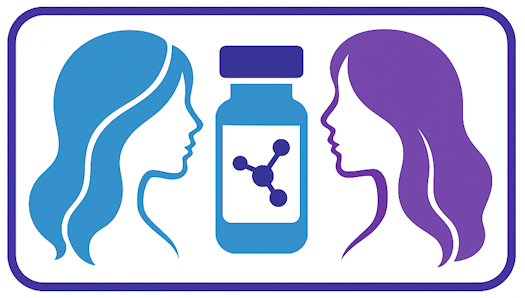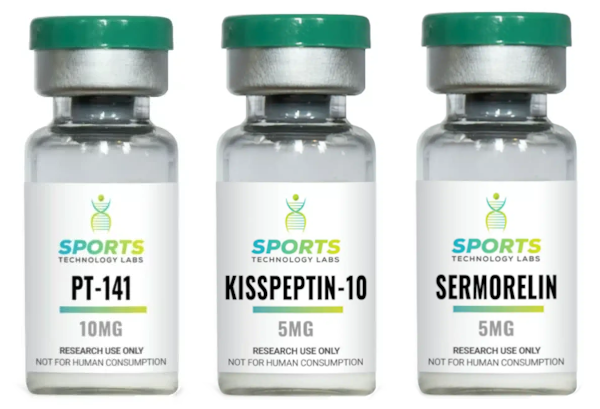Female libido is a complex aspect of women’s health that affects millions of women worldwide. Many women experience fluctuations in sexual desire due to various factors such as hormonal changes, stress, aging, or medical conditions. These challenges can have a significant impact on relationships and personal well-being.
The search for effective solutions has led to groundbreaking discoveries in peptide therapy. Peptides are small chains of amino acids that have shown promise as therapeutic agents for enhancing female sexual desire. What makes them particularly valuable is their ability to target specific biological pathways, which is beneficial for addressing libido-related concerns.
This comprehensive guide explores the best peptides for female libido in 2026. You’ll discover FDA-approved options like PT-141, the revolutionary potential of Kisspeptin, and the intimate benefits of Oxytocin. We’ll examine how these peptides work, their safety profiles, and practical considerations for their use.
Whether you’re going through menopause, experiencing stress-related desire issues, or looking for natural ways to enhance your sexual wellness, understanding these peptide options can lead to improved sexual health and satisfaction.
💗 Big Picture Summary
- 🔬 Explore the best peptides for female libido in 2025, including proven and emerging compounds like PT-141, Kisspeptin, and Oxytocin, all designed to enhance sexual desire, arousal, and emotional connection.
- 🧬 Learn how peptide therapy works at the neurological, hormonal, and vascular levels to reignite natural intimacy, support hormonal balance, and boost overall sexual wellness.
- 🌹 Discover how FDA-approved PT-141 (Bremelanotide) activates brain pathways for arousal, while Kisspeptin and Oxytocin help regulate hormones and deepen emotional bonding.
- 💞 Understand how additional peptides like Sermorelin and Melanotan II contribute to improved energy, confidence, and metabolic function, supporting a healthier libido from within.
- ⚡ Backed by scientific research, these female-focused peptides offer a personalized, natural alternative to traditional libido treatments—enhancing pleasure, confidence, and connection at every stage of life.
➡️ Looking To Buy Peptides? See Our Top Rated Source Here
What Are Peptides and How Do They Enhance Female Libido?
Note: You can pick up most of the peptides mentioned on this page at Sports Technology Labs, here’s a link to their site: www.SportsTechnologyLabs.com
Peptides are short chains of amino acids that serve as the building blocks for essential proteins in the human body. These molecular messengers play crucial roles in various biological processes, such as hormone regulation and cellular communication. Their small size allows them to penetrate cellular barriers effectively, making them powerful tools for therapeutic applications.
In the context of female sexual health, peptides act as specialized signaling molecules that influence both the brain and reproductive system. They interact with specific receptors throughout the body, triggering biochemical reactions that affect sexual desire and arousal responses. The hypothalamus and pituitary gland contain numerous peptide receptors that respond to these molecular signals.
The Pathways Through Which Peptides Influence Female Libido
The influence of peptides on female libido operates through multiple pathways:
- Neurological effects: Certain peptides activate brain circuits responsible for sexual motivation and pleasure. They can enhance the release of neurotransmitters like dopamine and oxytocin, which are intimately linked to sexual desire and emotional bonding.
- Hormonal effects: Peptides can stimulate the production and release of sex hormones, including estrogen and testosterone. These hormones are vital for maintaining healthy sexual function in women.
- Vascular effects: Some peptides improve blood flow to reproductive tissues, enhancing sensitivity and natural lubrication. For research on regenerative peptides that support vascular health and tissue repair, see BPC-157 & TB-500 Guide.
Promising Research on Peptides for Female Sexual Dysfunction
Research has identified specific peptides that target these pathways with remarkable precision. These compounds can potentially address various aspects of female sexual dysfunction, from low desire to arousal difficulties. Their ability to work through natural biological mechanisms makes them particularly promising for women seeking to enhance their sexual wellness.
For broader hormonal balance and symptom relief information, see Peptides For Menopause.
#1. PT-141 (Bremelanotide)
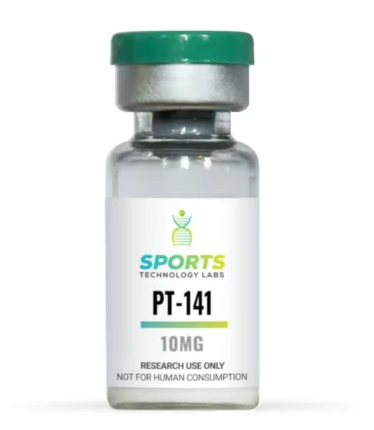
Note: You can pick up PT-141 at Sports Technology Labs, here’s a link to their site: www.SportsTechnologyLabz.com/product/pt-141-peptide/
PT-141, scientifically known as bremelanotide, is a groundbreaking FDA-approved peptide specifically designed to address female sexual arousal disorder (FSAD) and hypoactive sexual desire disorder (HSDD). This revolutionary treatment received its FDA approval in 2019, marking a significant milestone in women’s sexual health.
The effectiveness of PT-141 lies in its unique ability to activate melanocortin receptors in the brain. These neural pathways play a crucial role in sexual behavior and desire. Unlike traditional treatments that target blood flow, PT-141 works directly on the central nervous system, triggering natural sexual responses and enhancing desire at its source.
For detailed research, usage, and safety information, visit PT-141 Peptide Nasal Spray.
Women experiencing menopause find particular benefits with PT-141 treatment. Clinical studies demonstrate significant improvements in sexual desire, arousal, and satisfaction levels. Users report enhanced mood states during intimate moments and a noticeable reduction in discomfort typically associated with menopausal changes.
PT-141 offers flexible administration options:
- Subcutaneous injection: Delivers precise dosing with optimal absorption
- Nasal spray: Provides a needle-free alternative for those who prefer non-invasive methods
Common side effects remain mild and temporary:
- Mild nausea
- Facial flushing
- Temporary headaches
- Minor injection site reactions
The recommended dosage ranges from 1.75mg to 3.75mg, administered as needed approximately 45 minutes before anticipated sexual activity. Effects typically last between 6 to 72 hours, providing a reliable window for spontaneous intimacy.
Research indicates PT-141 maintains its effectiveness without developing tolerance, making it suitable for long-term use under proper medical supervision. Regular monitoring ensures optimal results while minimizing potential side effects.
#2. Kisspeptin
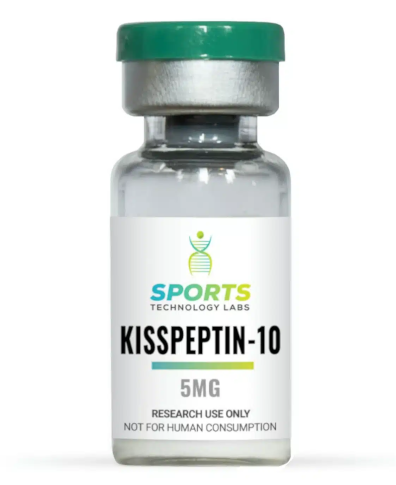
Note: You can pick up Kisspeptin at Sports Technology Labs, here’s a link to their site: www.SportsTechnologyLabz.com/product/kisspeptin-10/
Kisspeptin is a revolutionary peptide in the field of female sexual health, acting as a master regulator of reproductive function and sexual behavior. This naturally occurring peptide works directly on the brain’s neural circuits responsible for desire and attraction, making it a promising candidate for treating various forms of sexual dysfunction.
Research has shown that kisspeptin can influence sexual behavior by acting on specific areas of the brain. The peptide activates pathways in the hypothalamus, which then triggers a series of responses that enhance sexual receptivity and desire. These brain circuits are crucial for processing romantic and sexual stimuli, turning them into physical reactions.
The effectiveness of kisspeptin lies in its dual action on hormonal pathways. By stimulating the release of gonadotropin-releasing hormone (GnRH), kisspeptin helps maintain optimal hormone levels essential for female sexual health. Additionally, the peptide promotes the production of nitric oxide, a compound vital for sexual arousal and responsiveness.
Clinical studies investigating kisspeptin’s potential as a treatment for hypoactive sexual desire disorder (HSDD) have shown encouraging outcomes. Women undergoing kisspeptin therapy reported significant improvements in sexual desire and satisfaction. The peptide’s ability to target both hormonal and neural aspects of sexual function makes it particularly effective for addressing complex sexual health issues.
Recent advancements in kisspeptin research have uncovered its potential therapeutic uses. Scientists have identified specific subtypes of kisspeptin receptors that could lead to more targeted treatments for female sexual dysfunction. These developments suggest that therapies based on kisspeptin might offer a more nuanced approach to addressing libido-related problems compared to traditional treatments.
Current research indicates that kisspeptin has a favorable safety profile, with minimal reported side effects. This characteristic, combined with its natural presence in the body, positions kisspeptin as a potentially groundbreaking treatment option for women seeking to enhance their sexual desire and overall intimate experiences.
Related Article – Peptides For Women Over 40
#3. Oxytocin
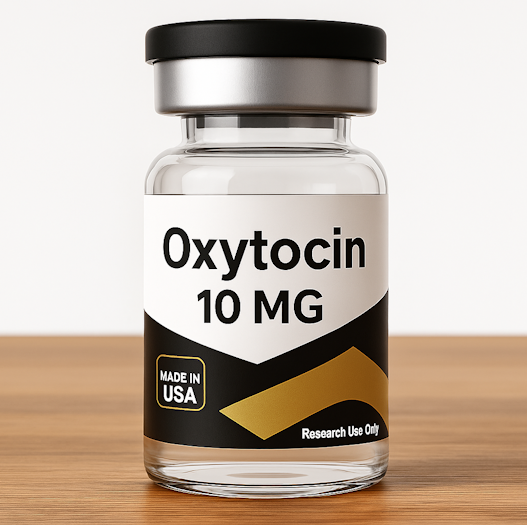
Note: You can pick up Oxytocin at Core Peptides, here’s a link to their site: www.CorePeptides.com/peptides/oxytocin-10mg/
Oxytocin, often referred to as the “love hormone,” is a powerful neuropeptide that plays a crucial role in female sexuality and emotional bonding. It helps women form intimate connections by influencing trust, attachment, and sexual responsiveness.
During physical touch, hugging, and sexual activity, oxytocin is naturally released in the body, leading to a series of positive effects. These effects include increased sexual arousal, intensified orgasmic experiences, and deeper emotional connections during intimate moments. The release of oxytocin plays a significant role in enhancing the overall experience of intimacy and closeness.
Oxytocin also affects women’s bodies through various pathways that improve sexual function. It activates specific neural circuits responsible for pleasure and reward, which contribute to a heightened sense of enjoyment during intimate experiences. Additionally, oxytocin helps reduce anxiety and stress, factors that can often hinder sexual desire and satisfaction.
This dual action of oxytocin makes it particularly effective in addressing the complex nature of female libido. By influencing both the body’s physiological responses and emotional state, oxytocin helps foster a more fulfilling sexual experience.
Therapeutic Applications of Oxytocin Peptides
For women facing difficulties with sexual desire, therapeutic uses of oxytocin peptides show promising results. Healthcare professionals may prescribe oxytocin in different forms such as nasal sprays or sublingual tablets as part of a comprehensive approach to managing sexual health.
Recent studies indicate that oxytocin has potential benefits for treating specific sexual disorders, particularly those linked to emotional disconnection or anxiety during intimate encounters. Its ability to foster a sense of safety and trust makes it valuable for women who encounter psychological barriers to sexual satisfaction.
Clinical Benefits of Oxytocin
The therapeutic use of oxytocin can lead to various improvements in women’s sexual experiences. These benefits include enhanced arousal response, which helps increase sexual desire and enjoyment. Oxytocin also fosters improved emotional connection during intimacy, allowing individuals to feel more emotionally in tune with their partners.
In addition to these emotional benefits, oxytocin helps reduce anxiety during sexual activity, which can often interfere with relaxation and pleasure. This reduction in anxiety contributes to increased satisfaction and pleasure, allowing women to enjoy a more fulfilling sexual experience. Lastly, oxytocin plays a key role in strengthening bonding with partners, further enhancing the overall quality of the relationship.
Important Considerations for Oxytocin Use
It’s essential to note that the therapeutic application of oxytocin requires careful medical supervision. This ensures appropriate dosing and administration methods tailored to each individual’s needs.
By taking this personalized approach, optimal results can be achieved while prioritizing safety and effectiveness in supporting female sexual health.
Other Notable Peptides For Female Libido
Note: Click Here Now to visit the official Sports Technology Labs website to pick up the peptides mentioned on this page.
In addition to peptides that directly boost libido, there are other compounds that work behind the scenes to improve female sexual health by promoting overall well-being.
-
Sermorelin
Sermorelin stands out as a powerful growth hormone-releasing peptide that stimulates natural hormone production in women. By activating the pituitary gland to release growth hormone, sermorelin triggers a cascade of beneficial effects on the body. These effects include enhanced energy levels and stamina, making it easier to maintain an active lifestyle.
Learn more about its clinical profile at Sermorelin Benefits.
In addition to boosting energy, sermorelin contributes to improved muscle tone and strength, helping to increase overall physical performance. It also plays a significant role in improving sleep quality, allowing for deeper, more restorative rest. The peptide accelerates recovery and healing, reducing downtime after physical exertion or injury. Lastly, sermorelin strengthens immune function, helping the body better defend against illness and maintain overall health.
These vitality improvements create an optimal foundation for healthy sexual function and desire in women.
Related Article – Best Peptides For Sleep
-
Melanotan II
Melanotan II brings an interesting dual benefit to women’s health. While it is primarily known for its skin-darkening properties, research indicates that this peptide also offers subtle yet meaningful effects on libido enhancement. The influence of Melanotan II extends to various aspects of sexual and metabolic health.
One of the key benefits is a mild increase in arousal, which helps boost sexual desire. Additionally, Melanotan II enhances sexual responsiveness, making intimate experiences more satisfying. Beyond its impact on sexual health, this peptide also plays a role in improving glucose regulation, which can have a positive effect on overall metabolic function. It further contributes to better cholesterol metabolism, supporting cardiovascular health and reducing the risk of related issues.
These metabolic advantages contribute to whole-body wellness, indirectly supporting sexual health through improved energy levels and cardiovascular function. Women using Melanotan II often report feeling more confident and energized, psychological factors that play crucial roles in maintaining healthy libido levels.
The combined effects of these peptides show their importance in comprehensive female sexual health strategies, working alongside direct libido enhancers to create balanced, sustainable results.
Where to Buy Peptides For Libido
For the best balance of price and quality, our top rated peptides source is none other than a company called Sports Technology Labs. A market leader for several years, Core sells every peptide listed above, often at prices significantly lower then the competition.
For example, while many companies sell Sermorelin in the $70 – $100 range, Sports Technology Labs sells it for just $48. In addition, they offer significant savings for those buying larger quantities.
Use code SAVE10 at checkout to receive 10% off your order, here’s a link to their site to learn more.
Conclusion
The world of peptides for female libido treatment is constantly changing, thanks to groundbreaking research into peptide therapies. Scientists are discovering new pathways in the brain and mechanisms that affect sexual desire, expanding the possibilities for treating female sexual dysfunction.
The success of PT-141 has opened doors for innovative treatments targeting specific biological pathways. Research labs around the world are exploring next-generation peptides that are more effective and have fewer side effects. These new therapies show promise in addressing both the physical and emotional aspects of female sexuality.
The best peptides for female libido in 2026 represent just the beginning of a revolutionary approach to women’s sexual health. As we learn more, personalized treatment plans that combine different peptides may become standard practice. Women who want to improve their intimate experiences can look forward to safer and more effective options supported by thorough scientific research. To explore affordability and access comparisons, visit Peptide Therapy Cost.
The future of female sexual health treatment is full of possibilities. It gives women the power to make informed decisions about their sexual well-being through advanced peptide therapies.
See Also
